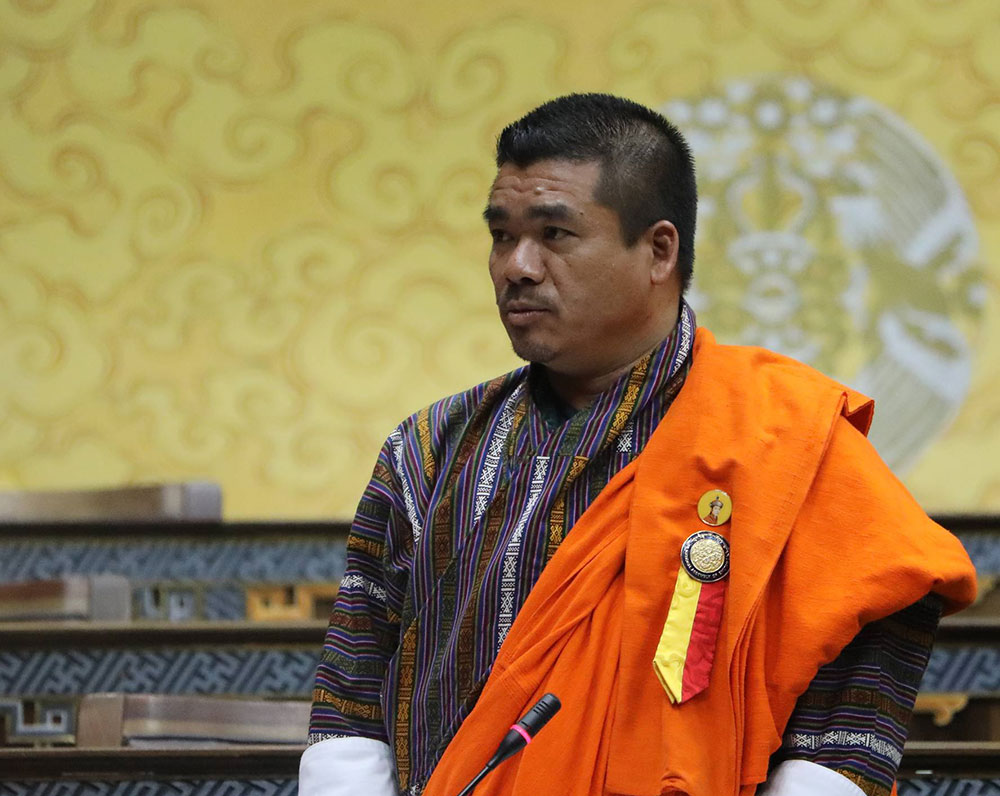KP Sharma
The government is reviewing the Road Act of 2013, focusing on the compensation aspect, according to the minister of Infrastructure and Transport (MoIT), Chandra Bdr Gurung.
The minister was responding to concerns raised by Katoed-Laya MP, Lhaba, about the inconveniences and issues caused by road construction, specifically the required distance between roads and houses.
Lhaba argued that while farm roads benefit the people, new farming methods have prompted the government to demand compensation for owners of degraded land.
He added that government policy mandates a 50-foot clearance on both sides of roads where houses are built, causing inconvenience. He urged a review of past Acts to reduce this requirement to 30 feet.
In response, Lyonpo Chandra Bdr Gurung said that the country had approximately 11,200 farm roads, covering around 40,000 acres of land and clarified that there were no regulations on compensation for land damaged by farm roads, as these roads were primarily constructed for the community’s benefit.
Road right-of-way (RRoW) is considered essential for the safety of all road users and to accommodate future road expansion and upgrades.
He said that the 50-foot RRoW corridor applied solely to national highways. For Dzongkhag roads and farm roads, the corridors are 30 ft and 20 ft, respectively, in accordance with the road rules and regulations of 2016.
About the compensation for land acquired for road construction, Lyonpo stated that land taken for national highways qualifies for compensation, either through land replacement or monetary compensation.
However, he clarified that for land acquired for dzongkhag roads and farm roads construction, there was no provision for compensation.
The rationale behind this decision, he said, was that these roads were prioritised to meet the needs of rural communities and that the financial burden would be substantial if the government were to compensate all affected properties.
“It is not fair for the affected owners; the only concern is that it will be a huge burden to the national exchequer if we start providing compensation and land substitutes for those affected by the construction of the dzongkhag roads and farm roads,” he said.
Regarding solutions to address road construction encroaching on private lands, Lyonpo highlighted the ministry’s approaches. These include prioritizing government land for road construction, avoiding small land holdings, aligning roads away from private property, and engaging in thorough community discussions and consultations before construction to prevent encroachment.


